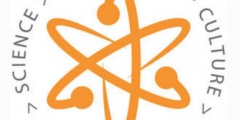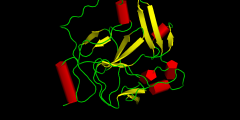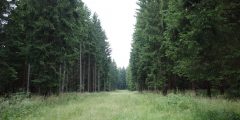Metaphors, metaphors, metaphors
April 2, 2021
Recently somebody asked me something about metaphor and I thought to myself, what the heck do you know about metaphor? Actually, not an awful lot, given all the stuff I have written about it, or rather the stuff that I have written which involves some sort of reference to metaphor. So, I started to make …
Naming without shaming: A virus communication conundrum
February 19, 2021
We have all heard about the Kent strain of the coronavirus, or the UK or English strain for that matter, or the South African strain, or the Brazilian strain, not to forget the despicable references to the China or Wuhan virus by a former president of the United States. It’s good that we know about …
Loaded language
February 13, 2021
A lot has been written about the dangers of war metaphors used by politicians during the pandemic. But war metaphors are of course everywhere in political speech, where people fight elections, defeat opponents, battle against the odds. It is almost impossible to think about politics without thinking of it as a battle to be won. …
Science, Technology & Culture: In memory of Christopher Johnson (1958-2017)
January 8, 2021
Almost 20 years ago, I was working at the Institute for Science and Society located in the Law and Social Sciences Building (then called the Institute for the Study of Genetics, Biorisks and Society). I don’t know how it happened, but somehow I must have come across somebody telling me that people were establishing a …
Genetics and genomics – when metaphors begin to matter
December 28, 2020
I remember in the not so distant past standing in the Wellcome Sanger Institute in Cambridge admiring the huge sequencing machines and chatting about public engagement with colleagues before giving a talk about genomics and metaphors. I also remember writing some things about gene editing and metaphor. In my mind all this related to basic …
Protein folding and science communication: Between hype and humility
December 4, 2020
During the afternoon of the 30th of November, I looked at Twitter and saw that somebody had retweeted a tweet by Tom Whipple, the Times science editor, saying that in an hour he would announce a big science story. That retweet was an hour old. I got curious and hunted around a bit in the …
One day in twitterland: Metaphor, memory and amazement
November 29, 2020
People have all sorts of opinions about Twitter, but for me, so far, the experience has been positive; never more so than when it comes to ‘interdisciplinarity’. I work across the humanities, social science and natural sciences and follow people from what one may call all walks of science. I also work across science and …
An injection of metaphors
November 11, 2020
I hadn’t intended to write a blog post this week. So this is only an attempt to not let an important episode in the Covid and metaphor saga pass by without recording it for posterity. Others will have to do the difficult work of actually analysing what was going on. On 9 November, Monday afternoon, …
The social and metaphorical life of viruses
October 30, 2020
Metaphors are an essential part of science, from doing basic science to engaging in popular science communication. They can be used sporadically; they can be used more systematically to conceptualise a topic, for example the structure and function of DNA; or they can be used in a veritable firework sprinkled across one article. I once …
Firebreak
October 20, 2020
About a month ago, when I thought the government was about to announce a ‘circuit breaker’, I wrote a blog post about that metaphor. Now the Welsh government has announced a circuit breaker but has called it a ‘fire break’. That means that I now have to write a quick post about the ‘fire break’ …
Subscribe by email
About this blog
This blog promotes discussion of topics related to the research programme 'Making Science Public: Challenges and Opportunities'. Our purpose is not to 'make science public'. Instead, we want to study the opportunities that have emerged for science to be more openly practiced and debated, but also the challenges posed by making science public or by promoting the making public of science as a solution to a variety of problems in society and in politics.
This blog will report on these and other issues related to the Leverhulme funded research programme: Making Science Public: Challenges and Opportunities
Useful links
Recent Posts
- Climate change and climate discourse: A dual disintegration
- Erving Goffman: Memories, method and metaphors
- Participation at the core: AI, ELSI and community engagement
- Understanding computational hermeneutics: Making meaning between the past and the present
- AI winter and AI bubble: Historical and metaphorical reflections
Categories
- antibiotics
- anticipatory governance
- artifical intelligence
- big data
- biotechnology
- citizen science
- Climate Change
- Climate Politics
- co-production
- coronavirus
- Creationism
- Definition of Science
- designer babies
- disease
- disease
- engineering
- epigenetics
- Food Security
- Food sovereignty
- gene drive
- genomics
- GM Food
- GMOs
- history of science
- Hype
- images and visualisations
- imaginaries
- Immigration
- Impact
- infectious diseases
- innovation
- interdisciplinarity
- Knowledge Society
- Language
- Markets
- Metaphors
- microbiome
- neoliberalism
- Neuroscience
- open access
- Personal Reflection
- Politics
- Public education
- public engagement with science
- public needs
- public participation
- public policy
- public service
- publics
- regulatory science
- Religion
- Republican Party
- research impact
- responsible innovation
- responsive research
- Richard Dawkins
- risk
- Scepticism
- Science
- Science and Government
- science and politics
- Science and Songs
- science communication
- Science Communication
- Science Fiction
- Science Policy
- Social science
- sociology
- space
- space exploration
- synthetic biology
- transparency
- Trust
- Uncategorized
- Uncertainty
- visualisation
- wonder










